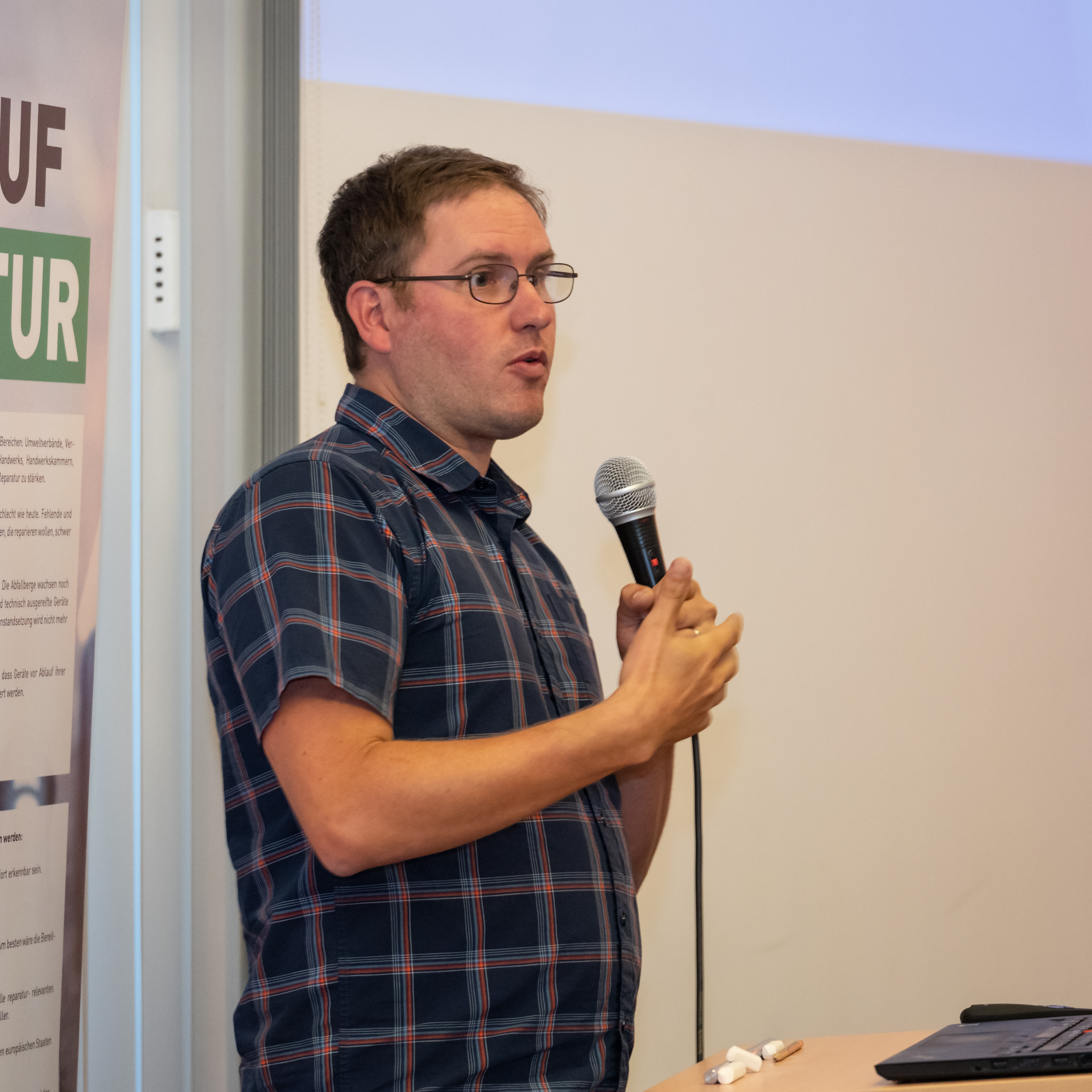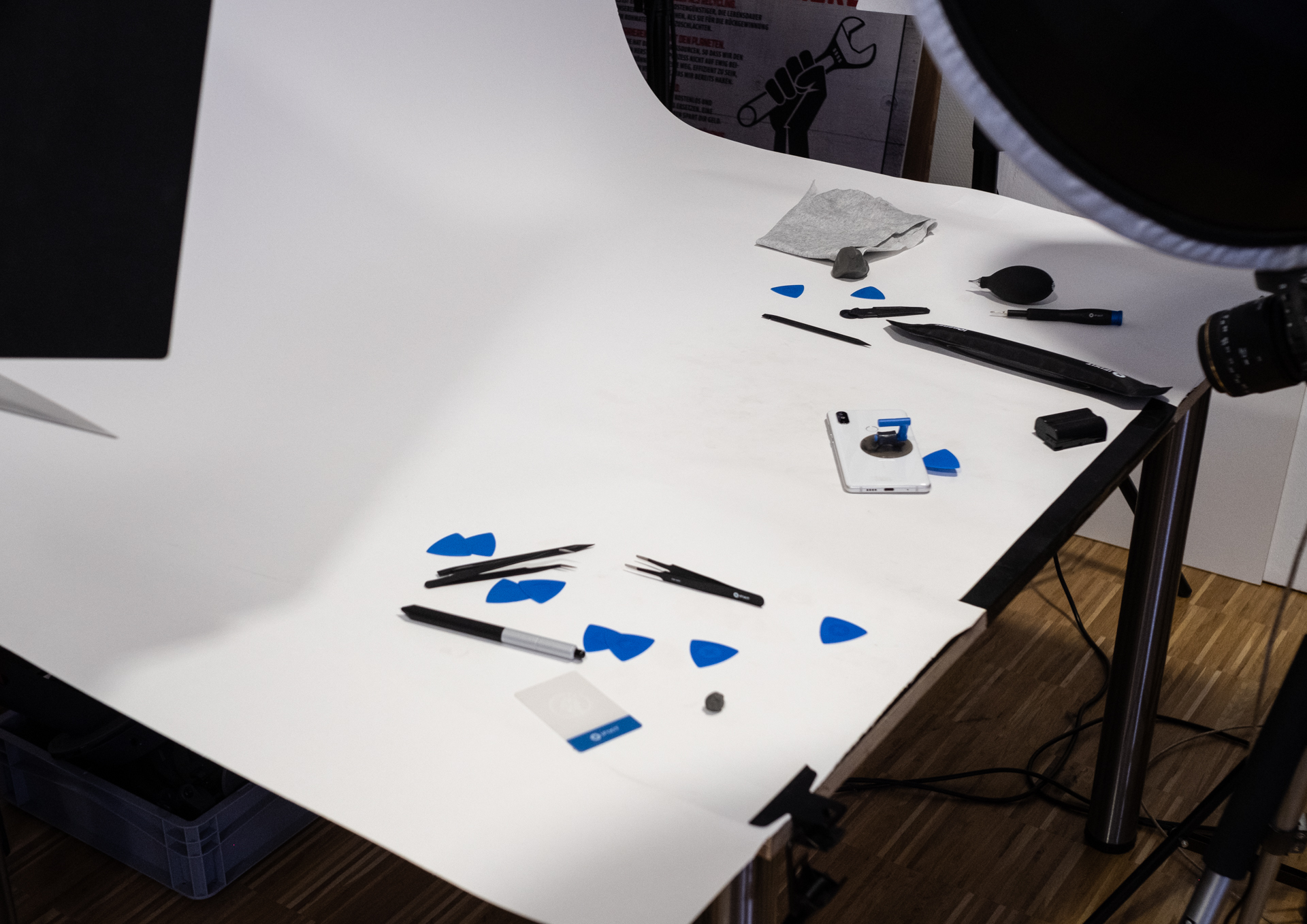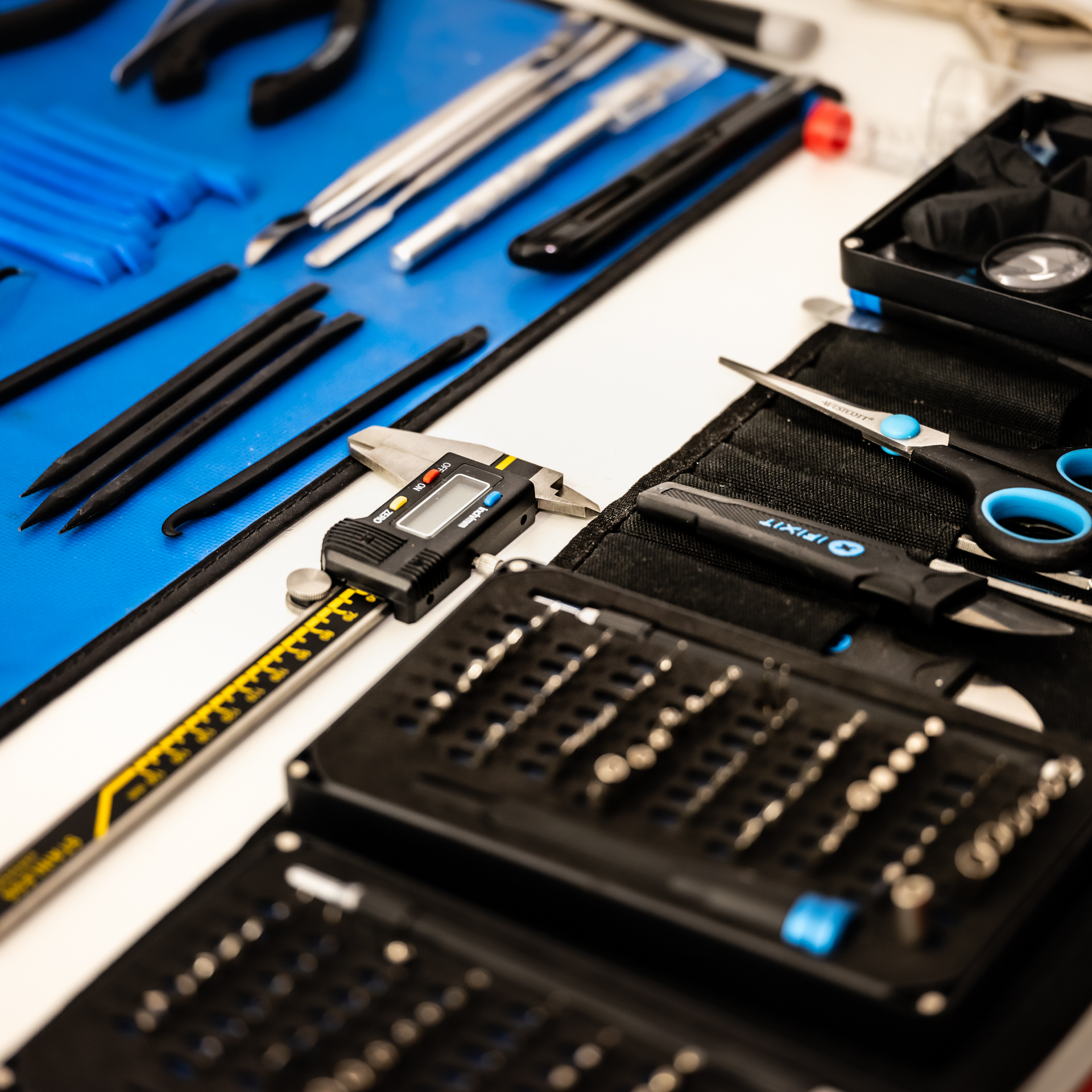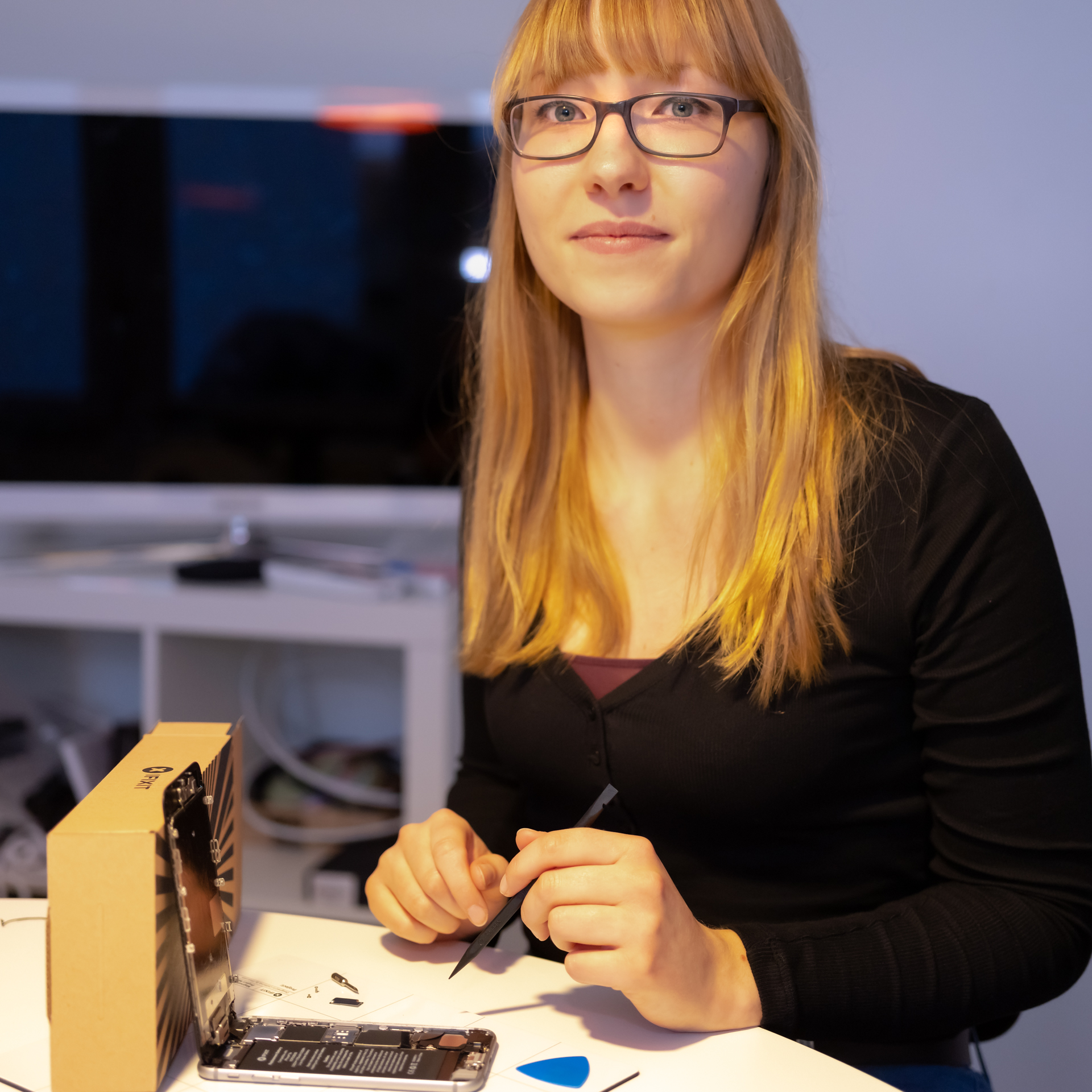iFixit started out in California in 2003, with Kyle Wiens and Luke Soules trying to fix an old Apple iBook together. There were no instructions, so it was a process of trial and error. The lack of repair instructions inspired them to write their own step-by-step guide and to post it online. Created as a wiki, many others have contributed, and their site has now become an indispensable resource, helping people around the world fix their phones or computers. iFixit is also well known for its device teardowns, which have become an essential part of every major device launch. As they claim, their website provides ‘repair guides for everything, written by everyone‘.




![[solutions4_4]](https://unbroken.solutions/wp-content/uploads/2022/03/solutions4_4.jpg)
![[solutions4_5]](https://unbroken.solutions/wp-content/uploads/2022/03/solutions4_5.jpg)
![[solutions4_3]](https://unbroken.solutions/wp-content/uploads/2022/03/solutions4_3.jpg)
![[solutions4_6]](https://unbroken.solutions/wp-content/uploads/2022/03/solutions4_6.jpg)
![[solutions4_7]](https://unbroken.solutions/wp-content/uploads/2022/03/solutions4_7.jpg)
![[solutions4_9]](https://unbroken.solutions/wp-content/uploads/2022/03/solutions4_9.jpg)

